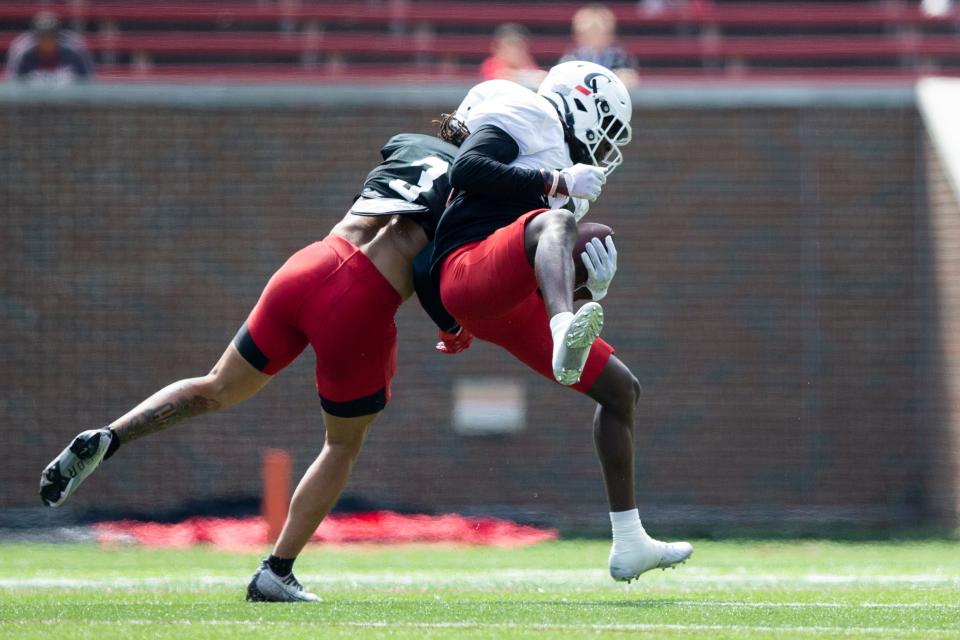Cincinnati Bearcats won't get increased revenue share in Big 12, but Pac-12 schools will

There was speculation the Cincinnati Bearcats might get a full share of TV revenue from the Big 12 in their first year of conference membership, but that won't be the case.
After four current Pac-12 teams – Colorado, Arizona, Arizona State and Utah – decided to move to the Big 12 starting in 2024, they were granted full shares of the conference's TV deal. That led to speculation the Bearcats, UCF, Houston and BYU might also get full shares immediately, but the conference put that speculation to rest with the following statement Wednesday:
The two-year revenue distribution phase-ins for BYU, Cincinnati, Houston and UCF remain unchanged by the Big 12’s expansion to 16 members.
UC's media rights revenue will increase from roughly $7 million to somewhere between $18-19 million with the partial share for the next two seasons until they become full-share members in 2025.
"Then, it's the full share (nearly $32 million per school), which is a true windfall for us," Cincinnati athletic director John Cunningham said. "We've had to be very strategic about our budgeting as we want to continue to grow the right way. We budget on a seven-year plan and talk about what that would look like."
Conference realignment: Big Ten, Big 12 realignment has thrown college sports for a loop. What's next?
Column: Is Big 12 football poised to take over 'Pac-12 After Dark' series?
Former Pac-12 schools will get full share immediately
Not much is fair in life or athletics. Less than two weeks after UC's Cunningham talked about the Big 12 influx of funds, the Pac-12's media deal was found unsatisfactory by their presidents with Arizona, Arizona State and Utah jumping to the Big 12 camp of commissioner Brett Yormark.
Effective Aug. 2, 2024, the Wildcats, Sun Devils and Utes join the Big 12 along with the previously announced addition of Colorado as full-share members.
Colorado was a previous member of the Big 8 before it became the Big 12. The other three Pac-12 institutions were all considered "Power Five" schools prior to UC, UCF, Houston and BYU, so that could explain their leverage.
Big 12 expansion: Colorado confirms return to Big 12 after leaving for Pac-12 in 2011
Even more Big 12 expansion: Conference adds Arizona, Arizona State and Utah from crumbling Pac-12
Will the Big 12 add a fourth time zone?
As the league stands now, UC, West Virginia and UCF are Eastern time zone teams, Iowa State, Kansas State, Kansas Oklahoma State, Texas Tech, TCU, Baylor and Houston are Central time and BYU, Colorado, Arizona, Arizona State and Utah would be Mountain time. At Big 12 Media Days outside of Dallas, Commissioner Yormark expressed interest in a fourth time zone that would obviously benefit his ESPN/Fox media deal.
"You hope it slows down," Satterfield said. "I have no idea where we're headed or where we're going. I've heard a few things about realignment, but really and truly, I can't control any of that. All I can do control is how these kids come out here and perform and play and that's what we've been worrying about. How hard can we come out here and play and put together a team that we're going to be very competitive (with) this fall?"
This article originally appeared on Cincinnati Enquirer: Big 12 TV revenue share for current Pac-12 schools, Cincinnati differ

